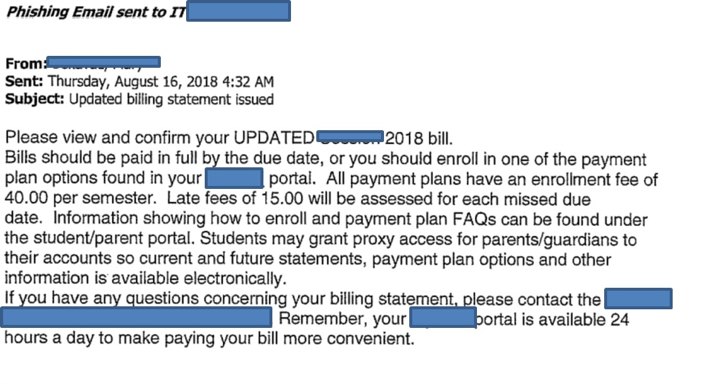Keep your financial aid refund safe from scammers
College students like you are targeted by scammers who design emails and websites replicating university resources, with real phone numbers, photos and logos, to trick you into providing personal information. This is known as phishing and just one attempt could affect your financial aid refund if you fall for it.
What to look for
You may receive an email that says you have unpaid tuition or other fees that need to be paid immediately. Scammers will include a link to a fake login page that is designed to capture your AccessID and password, which they then use to log in to your account and edit your direct deposit information so that your refund is sent to them instead.

What to do
C&IT recommends the following steps to confirm if an email is legitimate.
Even if you receive an email from a wayne.edu email address, it may not be legitimate. When scammers gain access to one person's account, they will often use it to send the phishing email to other wayne.edu accounts. Be wary of emails that come from individuals instead of group accounts (helpdesk@wayne.edu, financialaid@wayne.edu, etc.).
Example of a fake link: Example of a legitimate link:
If you are the victim of a phishing attack, have issues with your financial aid refund, or are just suspicious of a certain email, please contact the C&IT Help Desk or Student Accounts Receivable.
National Cyber Security Awareness Month (NCSAM) - observed every October - was created as a collaborative effort between government and industry to ensure every American has the resources they need to stay safer and more secure online.